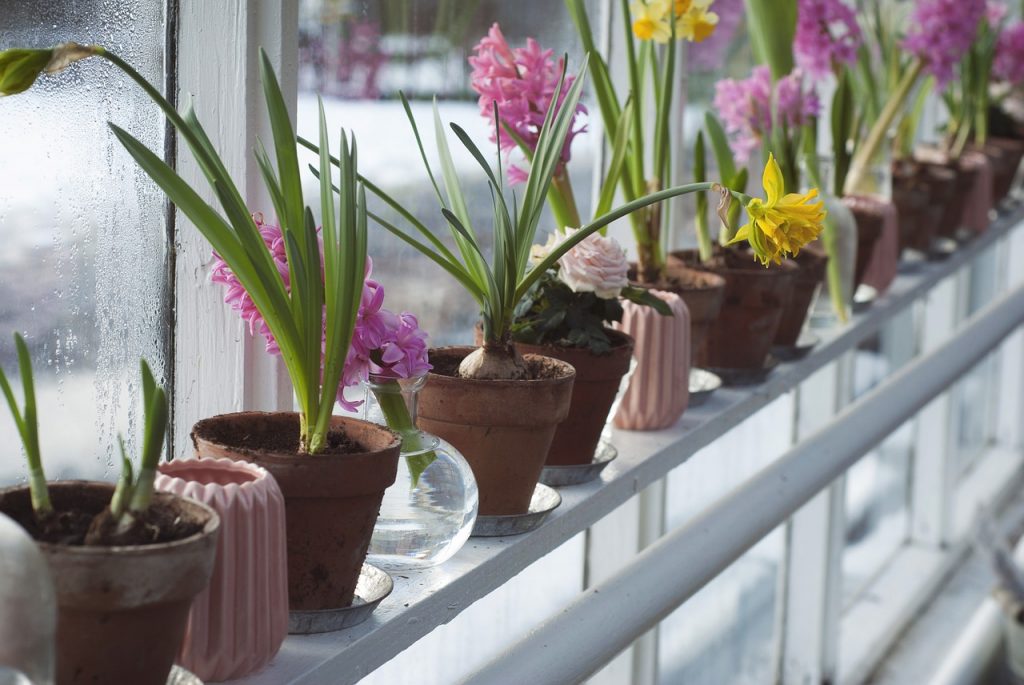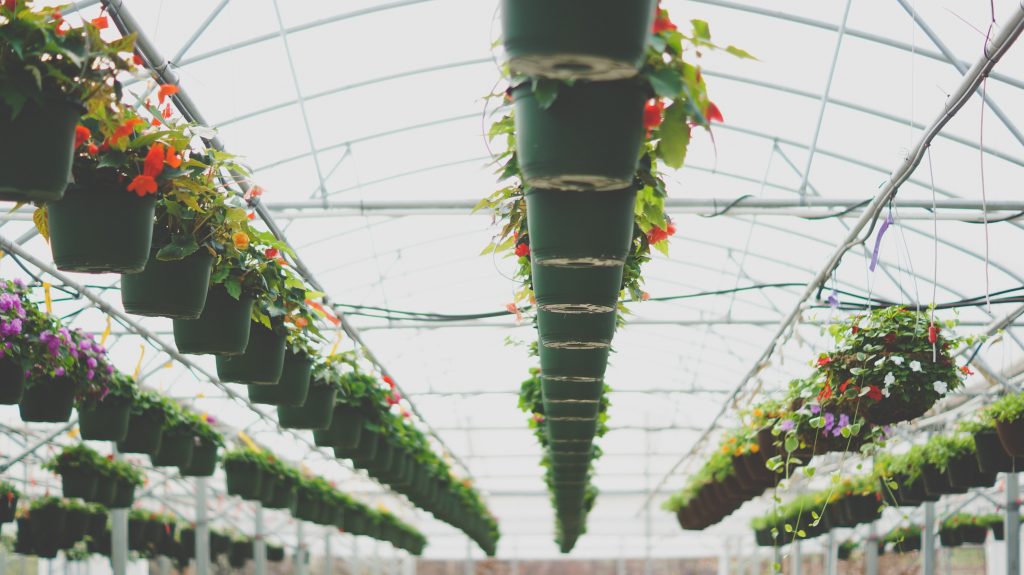Garden Center English Vocabulary Posted by Gary Locke on May 3, 2018 in Culture, English Vocabulary
To plant a garden is to believe in tomorrow.
It was a long winter. For much longer than usual the cold refused to yield to the spring sunshine, and buds and blossoms resisted our pleas to grace us with their presence. But there was one place where spring could be found – the greenhouses of your local garden center.
Even if you have no skill or interest in gardening, and even if you never fail to kill even the hardiest cactus, you really should treat yourself to a visit to a garden center. Here you will find pots of flowers, herbs, vegetables, and every imaginable plant which will grow in your region of the country. You will find pots and soil and plant food. You will also find a place which is inspiring in its cheerfulness and serenity. And after a dreary winter, it is a most welcome place to be.
If you go to a garden center you will want to know some of the words and phrases which you will encounter. I won’t bother too much with the names of plants, but here are some examples of the unique vocabulary and products at your local plant peddler.
- Annuals – These are the plants which last only for one growing season.
- Aquatic plants – Plants which grow in or on the water. Water lilies, for example.
- Bedding plants – Plants, mostly annuals, which are grown in the greenhouse nursery and are planted in garden beds for color.
- Benches – People like to sit on benches in their garden areas.
- Biennials – These plants usually live for two years, normally producing flowers and seed in the second year.
- Bulbs – Flower bulbs are planted late season or in the fall. In the spring, beauty comes to life. Tulips, for instance.
- Complete fertilizer – Plant food which contains all three of the primary ingredients for plant growth – potassium, nitrogen, and phosphorus.
- Flats – Longer, shallow boxes for carrying plants to and from various locations. My wife keeps too many of them.
- Fountains – You can have fountains in your garden area. If you sit on a bench and listen to a fountain long enough, you will need to go to the bathroom.
- Garden apparel – Hats, gloves, boots, knee pads, and more to make the time you spend toiling in the garden more tolerable.
- Garden soil – Bagged and premixed organic material including topsoil, minerals, and maybe compost and manure. Specialty garden soil is available for flower beds, trees and shrubs, or vegetables.
- Grasses – Decorative grass plants.
- Ground cover – A group of plants which are planted to fill in bare patches and in and around rocks and stone walls.
- Hangers – Annuals which are sold in hanging pots. I’m personally fond of calibrachoas, a pretty, sprawling flowering plant, also known as Million Bells.
- Herbs – Plants which are used for cooking, medicine, or other practical uses. I grow them in pots on my deck which is why there’s never any place to sit.

Photo by Gemma Evans on Unsplash
- Liquid fertilizer – Food for your plants which is often sprayed through a hose or mixed in a large watering can.
- Manure – Animal-based organic fertilizer. Of course, you can always go to a cow barn and collect your own.
- Mulch – A loosely combined layer of material covering the main soil of the garden and used to control weeds and conserve soil moisture. Garden centers will sell many types of mulch, in many different forms. My wife has me buy about 30 heavy bags of superior quality mulch each year, and each year I think she’s trying to kill me.
- Perennials – Hardy plants and flowers which will return for many years. Or so you hope.
- Pest control – Often sold in spray bottles, you need something to get rid of anything in your area which is eating your precious plants.
- Popcorn – Okay, most garden centers don’t offer popcorn, but one near me does, and I eat more than my share.
- Potting soil – A soil mixture designed for use in container gardens and potted plants. If you buy garden soil when your wife wanted you to buy potting soil, she will let you know the difference.
- Succulents – Plants which contain and hold lots of water, and can grow in almost any soil condition. Cacti, for example.
- Statuary – Stone or resin figurines used to decorate your garden area. You will also find clever signs and markers at your garden center with sayings like Butterflies Welcome or Beware of Toad.
- Stones – Used to make retainer walls, for edging and defining the area of a garden, stepping stones within the garden, or any of several projects that you’ll procrastinate about until next year.
- Tools – Rakes, shovels, spades, wheelbarrows, carts, hoes, pitchforks, augurs, hedge trimmers, hand pruners, axes, saws, hatchets…The list goes on. One year I bought a potato digging tool by mistake, thinking that it looked useful. You’re welcome to borrow it any time!
- Watering tools – Hoses, hose attachments, and watering cans. You can’t count on the rain.
- Weeding tools – Because weeds happen.
I’m sure that I’ve left some things out. Please feel free to add to this list in comments. More importantly, however, please visit your local garden center today. You will feel so much better!

Build vocabulary, practice pronunciation, and more with Transparent Language Online. Available anytime, anywhere, on any device.




